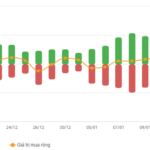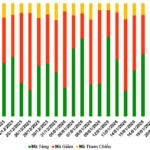
What is one-time social insurance?
One-time social insurance is a social security regime set forth by the State to support workers participating in mandatory insurance and citizens participating in voluntary social insurance when requested and meeting the conditions will be eligible for one-time insurance withdrawal.
The one-time social insurance regime is one of the benefits of participating in social insurance. This is a way for workers to use their insurance money as they wish, instead of waiting until retirement age to receive a monthly pension.
The conditions for enjoying one-time social insurance are stipulated in Article 1, Article 2 and Article 4 of Decree 115/2015/ND-CP as follows:
1. Workers specified in Clause 1 and Clause 2 of Article 2 of this Decree who meet the requirements are eligible for one-time social insurance if they fall into one of the following cases:
a) Having reached the retirement age as prescribed in Clauses 1, 2, and 4 of Article 54 of the Social Insurance Law but having not paid social insurance for 20 years or as prescribed in Clause 3 of Article 54 of the Social Insurance Law but having not paid social insurance for 15 years and not continuing to participate in voluntary social insurance;
b) After one year of quitting work but having not paid social insurance for 20 years and not continuing to pay social insurance;
c) Going abroad to settle;
d) Individuals who are suffering from one of the life-threatening diseases such as cancer, paralysis, cirrhosis, leprosy, severe tuberculosis, HIV infection progressed to AIDS stage, and other diseases as prescribed by the Ministry of Health;…
Therefore, workers who have paid social insurance for 20 years or more when retiring will only be eligible for one-time social insurance if they meet the conditions of going abroad to settle or being affected by one of the life-threatening diseases such as cancer, paralysis, cirrhosis, leprosy, severe tuberculosis, HIV infection progressed to AIDS stage, and other diseases as prescribed by the Ministry of Health.
In cases where workers have participated in social insurance for 20 years or more but do not fall under the above two cases, they can choose to preserve the time they have paid social insurance or continue to pay social insurance to receive a pension when they reach retirement age as prescribed.












